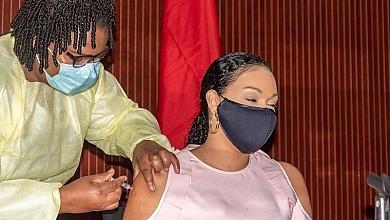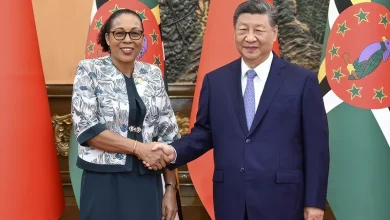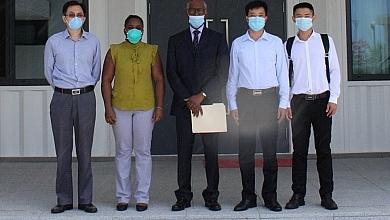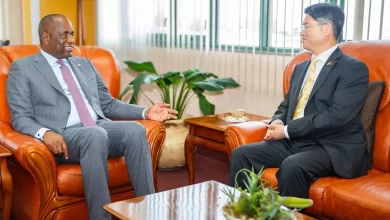China Responds to Rubio, Defends Infrastructure Investments in Caribbean

The Government of the People’s Republic of China has issued a sharp rebuttal following recent comments by U.S. Secretary of State Marco Rubio, who urged Eastern Caribbean leaders to avoid infrastructure partnerships with what he described as “malign actors” such as the Chinese Communist Party.
Rubio’s warning, delivered during a recent high-level meeting with the Organisation of Eastern Caribbean States (OECS) leaders, included a strong push for transparency and caution in selecting contractors for major national projects. He also linked some regional infrastructure efforts to data privacy and surveillance risks allegedly posed by Chinese firms.
In response, China’s Foreign Ministry defended its development assistance in the Caribbean, calling Rubio’s remarks “disrespectful, misleading, and contrary to the principles of sovereignty and mutual respect.”
“China’s cooperation with Caribbean countries is based on equality, transparency, and non-interference,” said the ministry spokesperson. “Our projects are undertaken at the request of host governments and are meant to support national development priorities — not to serve geopolitical rivalry.”
In Dominica, the Chinese government has funded several major undertakings, including the new China-Dominica Friendship Hospital, multiple school refurbishments under the China-Aid Project of Schools Reconstruction, and Chinese firm, China Railway No. 5 Engineering Group Co., Ltd. (CR5), has been contracted to design, construct, and commission the facilities of the International Airport Project. Officials from the Ministry of Foreign Affairs have consistently maintained that these projects are wholly owned by Dominica, with no security clauses or hidden arrangements.
Several OECS leaders have also responded cautiously to Rubio’s statements, emphasising the need for small island developing states to maintain diversified partnerships and avoid being drawn into larger geopolitical tensions. Speaking off the record, one official noted, “We choose partners based on who is willing to invest where others have hesitated.”
The matter deepens the dialogue around development diplomacy, where Caribbean nations now weigh strategic choices between Chinese funding and U.S. economic engagement.
Diplomatic observers say the matter could be further raised at the CARICOM Heads of Government Meeting this July, particularly as regional leaders seek to define a more straightforward strategy for infrastructure development, digital security, and foreign policy autonomy in an increasingly polarised global landscape.
This article is copyright © 2025 DOM767








